What is Cognitive Artificial Intelligence? And What are its Scope and Features?

4 min read | By Admin | 31 August 2020 | Technology
Distinctive human ability to envisage beyond the present. Can a computer create the capability to ponder without human intercession? The befitting answer is cognitive computing, a consolidation of computer science and cognitive science. Cognitive computing models render a practical guide to accomplish artificial intelligence. A system inspired by the brain exposes a new perspective on AI, called cognitive artificial intelligence.
The intention of cognitive artificial intelligence is to generate computer systems that will settle-up complex problems without human intercession.
What is Cognitive Computing?
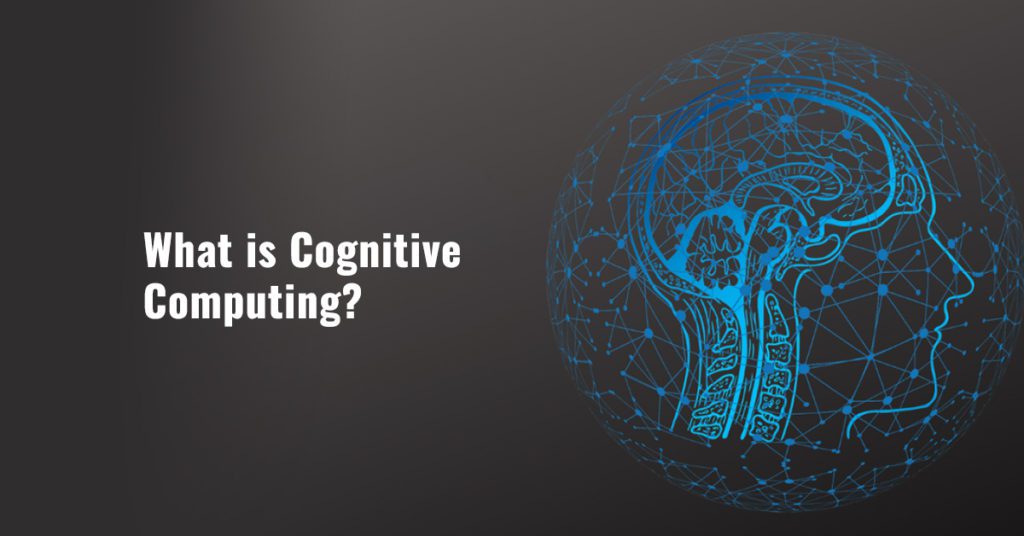
Cognitive computing implies to separate technologies that execute certain tasks to aid human intelligence. Cognitive AI technologies exploit computerized models to mimic the human cognitive process to discover solutions in complex circumstances.
The term cognitive computing is often utilized interchangeably with AI and it implies as cognitive artificial intelligence, the term is firmly related to IBM’s cognitive technology, Watson.
This cognitive technology relies on deep learning mechanisms and neural networks that function the information by collating it to teaching data. Utilizing cognitive computing aid to settle on finer human opinions at work.
Several Applications of cognitive computing incorporate sentiment analysis, face detection, speech recognition, fraud detection and risk assessment.
How Does Cognitive Computing Work?
Cognitive computing systems integrate data from different information sources and weigh contextual and conflicting sources to suggest appropriate answers.
To attain this, self-learning technologies utilize data processing, natural language processing (NLP) and computer recognition in cognitive systems to understand how the human brain works.
Utilizing computer systems to solve the sorts of issues that humans are normally entrusted with requires immense measures of organized and unstructured information, provided for machine learning algorithms.
Over time everything changes, cognitive systems are able to identify patterns, process data, anticipate new problems and model possible solutions.
To reach those competences, cognitive technology must have the key traits listed by the cognitive computer federation.
The Scope of Cognitive Computing
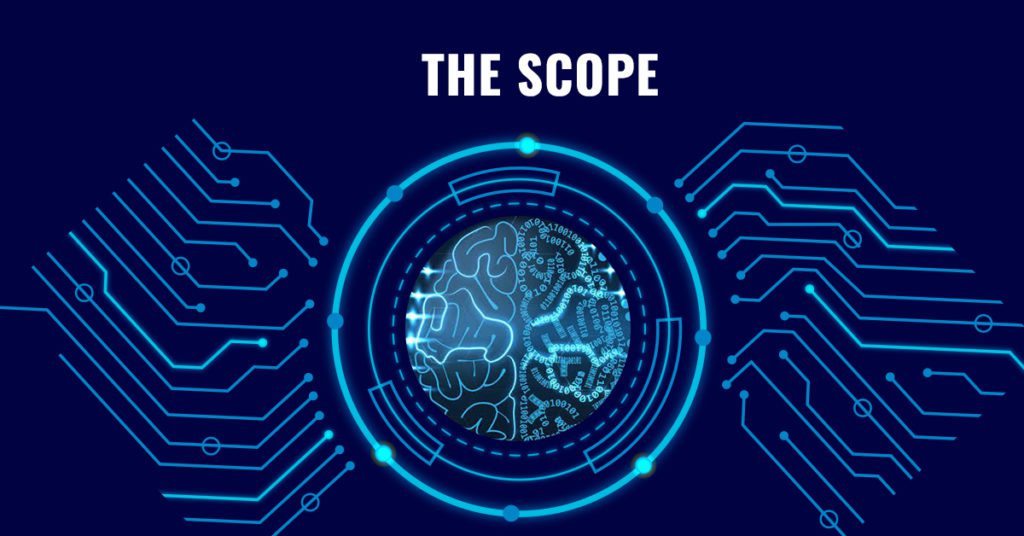
The scope of cognitive computing contains decision, discovery and engagement. These aptnesses are correlated to manners human thought and express their cognitive capability in daily life.
Decision
- Decisions made by cognitive systems ceaselessly develop dependent on new data, results, and activities. A well known use instance of this model is the utilization of IBM Watson in healthcare.
- The system can combine and examine data of patients including their history and diagnosis. Offering decision support competency and diminishing administrative work permits clinicians to invest more energy with patients.
Discovery
- Discovery is the most sophisticated scope of cognitive computing and it involves discovering insights and comprehending huge measures of data and creating skills.
- These models are built on deep learning and unsupervised machine learning. As the amount of data increases, there is a clear need for systems that help humans exploit information more effectively than they can.
- At an early stage, some discovery capabilities are already emerging, and value proposals for future applications are mandatory.
Engagement
- Cognitive technology consists of immense repositories of structured and unstructured data. These have the capability to generate deep domain insights and render expert succour.
- Chatbot technology is a huge instance of an engagement model. Many AI-chatbots are pre-trained with a domain adept to nimble adapt to various specific business applications.
The Features of Cognitive Computing
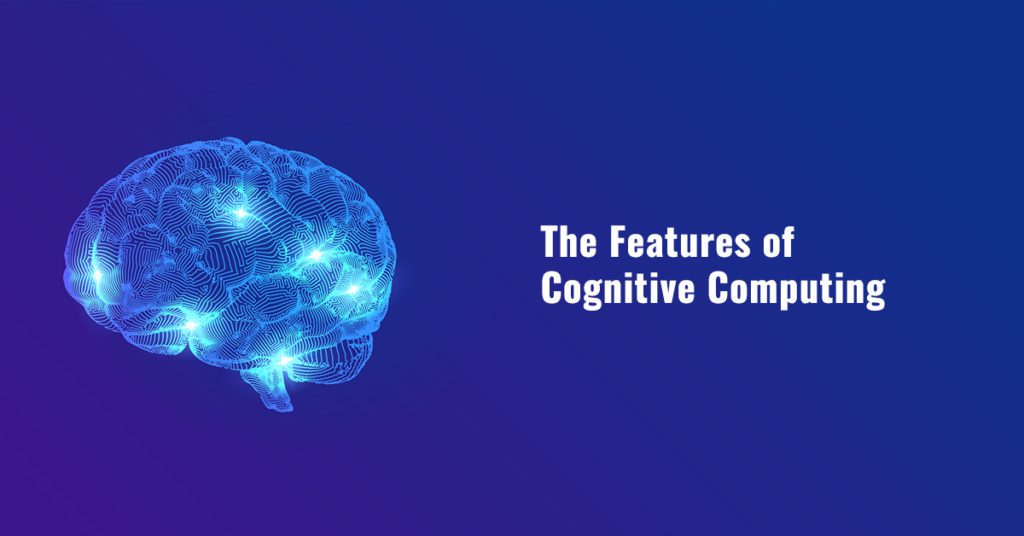
To implement cognitive computing in business and applications, the cognitive systems federation suggests the following features for computer systems:
Interactive
- Human-computer interaction is an important component of cognitive systems. Cognitive systems need to interact bifacially.
- It ought to comprehend human info and give suitable outcomes utilizing natural language preparing and deep learning.
- Some adept intelligent chatbots have earlier on attained this feature.
Adaptive
- Cognitive computing systems should be flexible enough to learn as data changes and goals develop.
- Solutions need to reflect the ability of the human brain to learn and adapt to the environment.
- Computers cannot be scheduled for isolated work. It will change in data collection, understanding of objectives and requirements.
Contextual
- Understanding context is crucial in thought processes, so cognitive systems need to comprehend and discover contextual data such as time, syntax, domain, location, necessity, tasks or goals.
- They can draw on many sources of information, both structured and unstructured digital information and emotional inputs.
Iterative and Stateful
- Cognitive AI technologies can likewise distinguish issues by posing inquiries or by pulling extra information if the expressed issue is ambiguous or fragmented.
- This feature requires heedful application of data quality and verification methods to ensure that the system has always furnished sufficient information and that it is a functional data source to offer reliable and up-to-date data.
To sum up- Cognitive Artificial Intelligence
Cognitive computing artificial intelligence is most effective as succors, such as multiplying intelligence instead of artificial intelligence. Cognitive intelligence is certainly the next phase of computing that started with automation.
Cognitive computing set a benchmark for achieving the status of the human brain. Such specialized programs are a prodigious way for businesses to begin utilizing cognitive systems.
Now would have you known about cognitive computing via this article. let’s move on to implement this in your business. And stay tuned with us to know such fascinating information.
FREQUENTLY ASKED QUESTIONS
Cognitive Computing focuses on mimicking human behaviour and reasoning to solve complex problems. AI augments human thinking to solve complex problems. It focuses on providing accurate results. It simulates human thought processes to find solutions to complex problems.
Cognitive Computing tries to replicate how humans would solve problems while AI seeks to create new ways to solve problems that can potentially be better than humans. AI is not intended to mimic human thoughts and processes but to solve a problem through the best possible algorithm.
Cognitive science is beginning to benefit from the power of AI, both as a model for developing and testing ideas about how the brain performs computations, and as a tool for processing the complex data sets that researchers such as Pandarinath are producing.
AI is about making computers solve complex problems, that if people solved them would require intelligence, it is the result that counts. Cognitive Science is about making computers solve complex problems similar to how humans solve problems, it is the process that counts.
Cognitive computing, along with data analytics, enable marketers to tailor content to their customers. Marketers utilise the tech to manage and collate a host of relevant data from various metrics, including predictive analytics, website performance, audience research, and social listening.
The latest from our editors
Join over 150,000+ subscribers who get our best digital insights, strategies and tips delivered straight to their inbox.
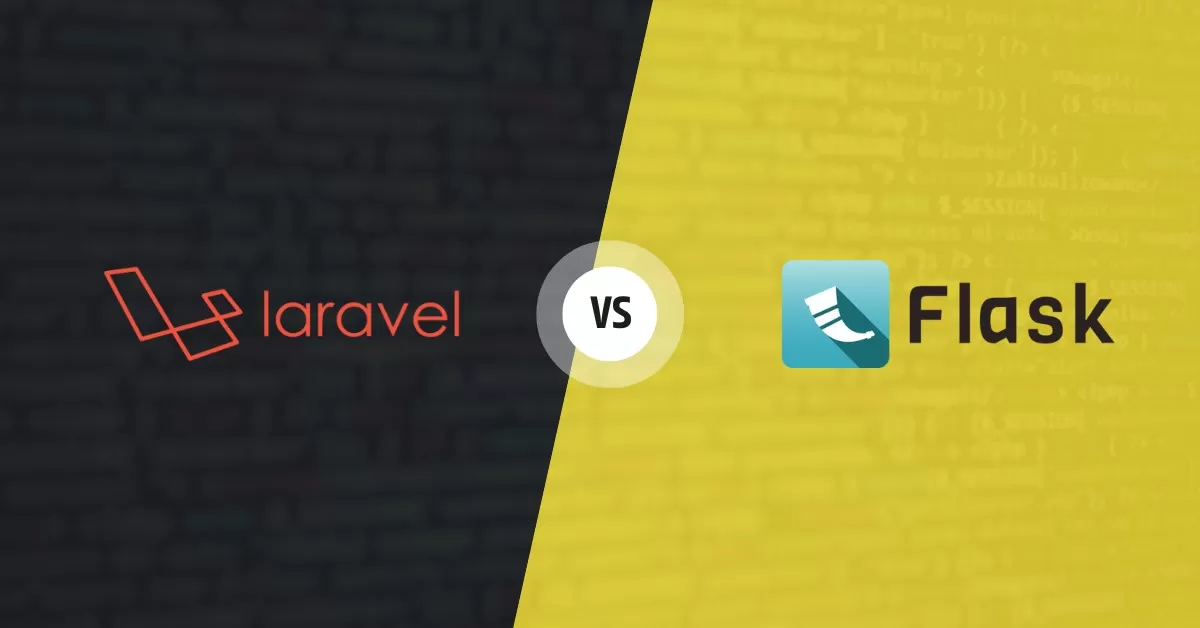

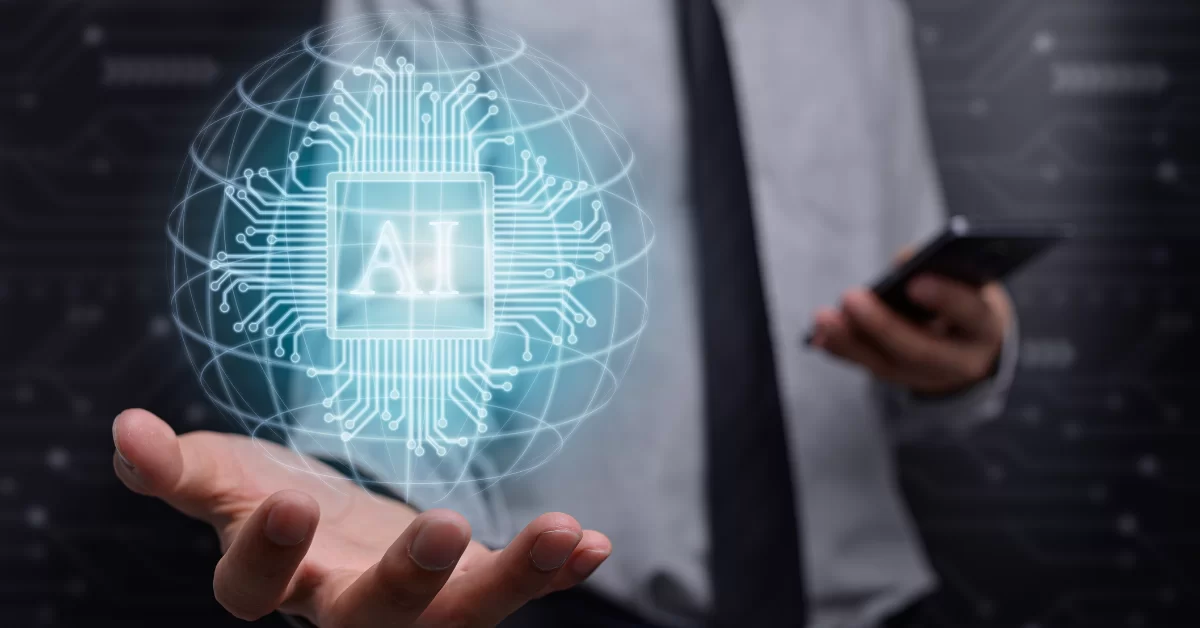
Comments are closed.